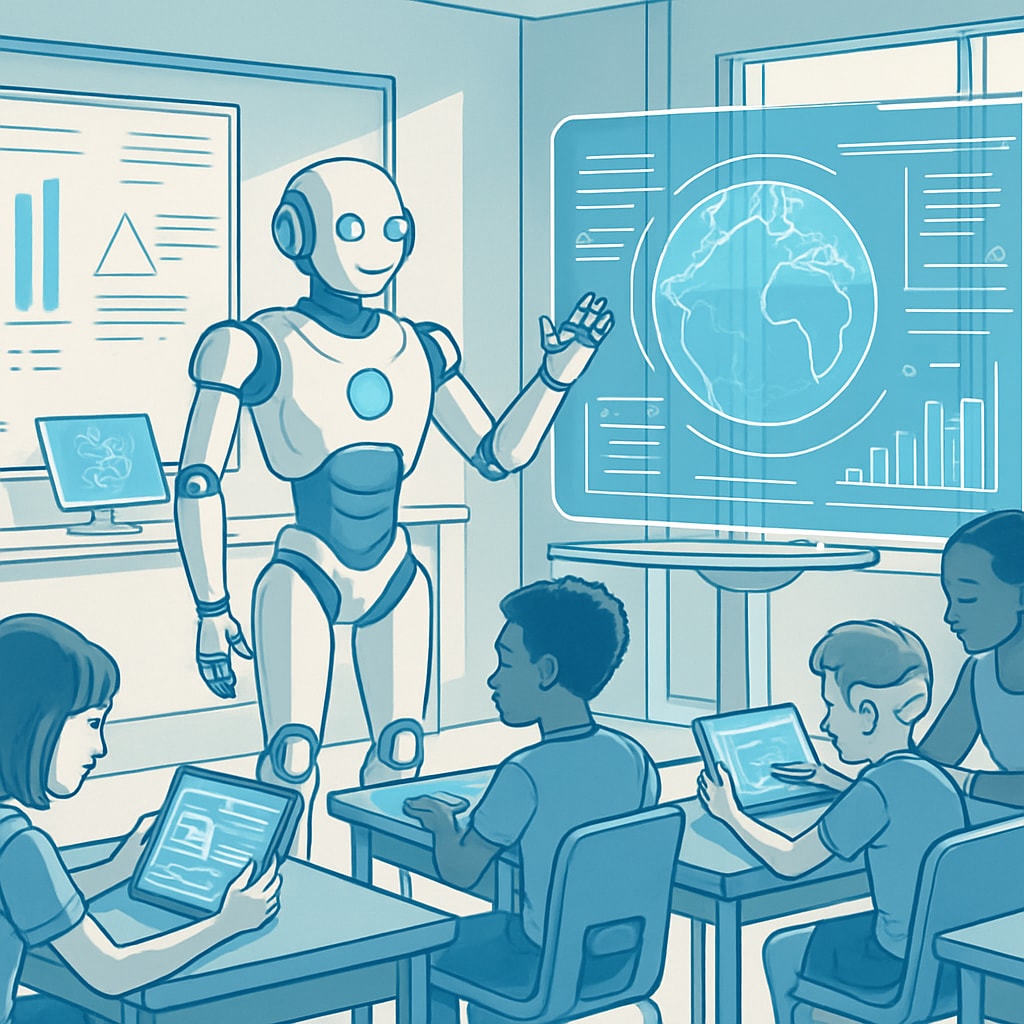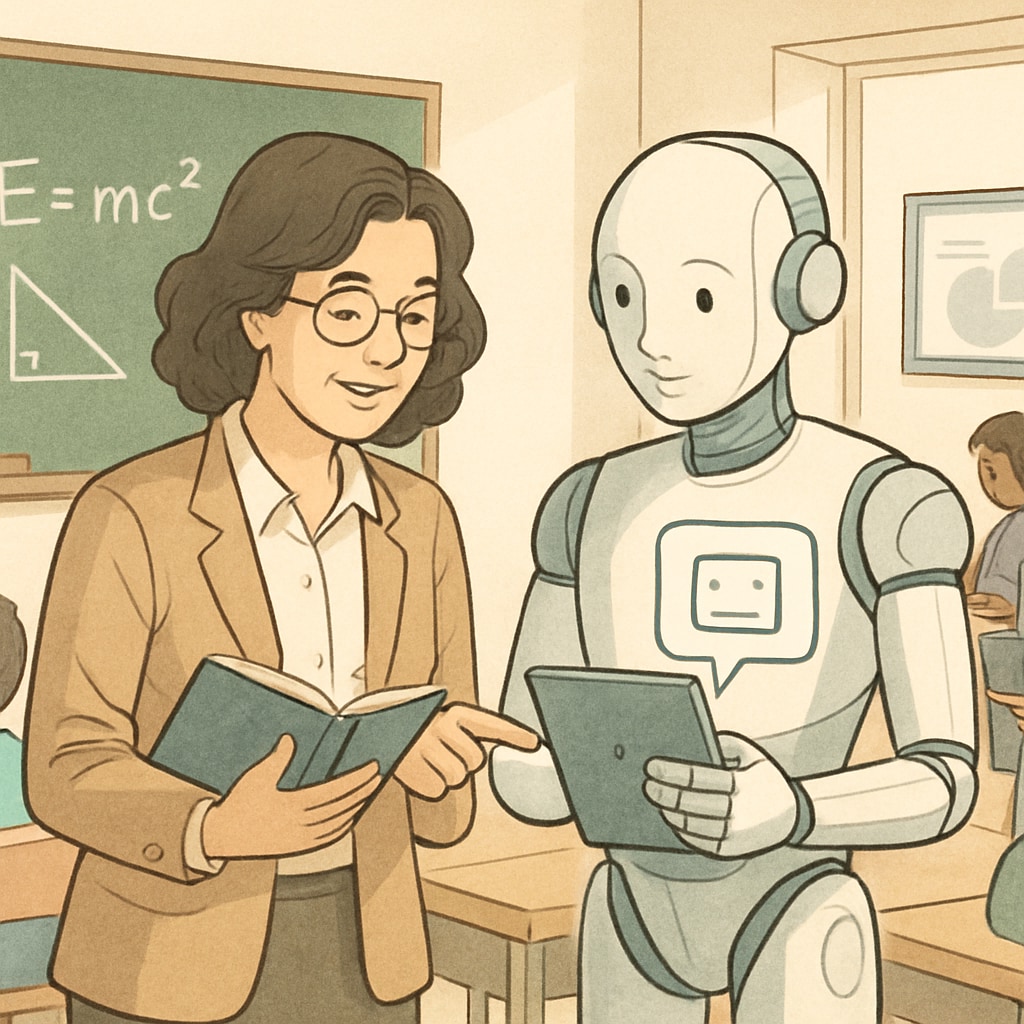Artificial intelligence (AI) is rapidly transforming education, driving significant trends in personalized learning and innovative classroom strategies. By 2030, AI is expected to redefine the K12 learning experience, making education more accessible, adaptive, and engaging. With 63% of education institutions and 67% of K12 teachers already integrating AI-powered tools in 2023, the stage is set for unprecedented advancements in how we teach and learn.
The Current State of AI in Education
AI adoption in education has come a long way in recent years. From virtual tutors to automated grading systems, schools and teachers are leveraging these tools to streamline administrative tasks and enhance student engagement. According to recent studies, over half of education institutions are now utilizing AI to improve learning outcomes. This trend reflects the growing confidence in AI’s ability to address long-standing challenges in traditional teaching models, such as large class sizes and limited resources.
For example, AI-driven platforms like Khan Academy use adaptive learning algorithms to tailor lessons based on individual performance. Similarly, AI chatbots are being employed to provide instant answers to student queries, reducing the burden on teachers while ensuring timely support for learners.

Transforming Classrooms Through AI
AI is not just a tool for efficiency; it is fundamentally changing the way classrooms operate. By analyzing student data, AI systems can identify knowledge gaps and recommend tailored learning paths. This level of personalization ensures that no student is left behind, regardless of their learning pace or style.
Additionally, AI-powered tools are enhancing classroom management. For instance, facial recognition systems can monitor student attention levels, helping teachers identify moments when learners may be disengaged. Smart boards and virtual reality (VR) tools driven by AI are also making lessons more interactive and immersive, fostering deeper understanding and retention of complex topics.
Some schools are even experimenting with AI teaching assistants, which can handle repetitive tasks like attendance tracking and assignment grading, allowing educators to focus more on teaching and mentorship.
The Role of Teachers in an AI-Driven Future
While AI is automating many aspects of education, it is not replacing teachers. Instead, it is redefining their roles. Teachers are evolving into facilitators and mentors, guiding students through a more individualized learning journey. With AI handling routine tasks, educators have more time to focus on fostering critical thinking, creativity, and emotional intelligence in their students.
Moreover, professional development for teachers is becoming increasingly important. Training programs now include AI literacy, equipping teachers with the skills needed to effectively integrate these technologies into their classrooms. As a result, educators are becoming co-creators in designing AI-enhanced curricula that align with educational goals.

The Future of K12 Education by 2030
Looking ahead, AI is poised to revolutionize K12 education in several key areas:
- Personalized Learning: AI will deliver highly customized educational experiences, catering to each student’s unique needs and abilities.
- Global Accessibility: AI-driven platforms will break down geographic and economic barriers, making quality education accessible to students worldwide.
- Data-Driven Insights: Advanced analytics will provide actionable insights into student performance, helping educators make informed decisions.
- Enhanced Collaboration: Virtual classrooms and AI tools will facilitate seamless collaboration among students, teachers, and parents.
As these trends unfold, collaboration between policymakers, educators, and tech innovators will be crucial to ensure that AI is used ethically and effectively in education. Standards and guidelines will need to address issues such as data privacy, equity, and the potential for algorithmic bias.
Conclusion
By 2030, AI will have fundamentally reshaped K12 education, offering unprecedented opportunities for personalized learning, teacher empowerment, and global accessibility. As artificial intelligence continues to drive transformative education trends, the focus must remain on creating a balanced partnership between technology and human expertise. The future of education lies not in replacing teachers, but in enhancing their ability to inspire and nurture the next generation.
As we navigate this exciting era of education technology, the potential of AI remains boundless. The question is no longer whether AI will revolutionize learning, but how we can harness its power to create a brighter future for students worldwide.
Readability guidance: This article uses short paragraphs and bulleted lists to summarize key points. Passive voice and long sentences are minimized for clarity. Transition words like “however,” “for example,” and “in addition” enhance flow and structure.


